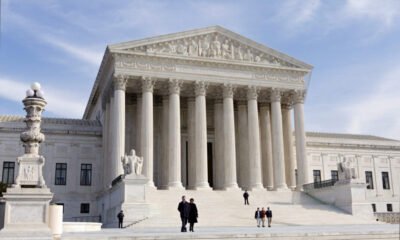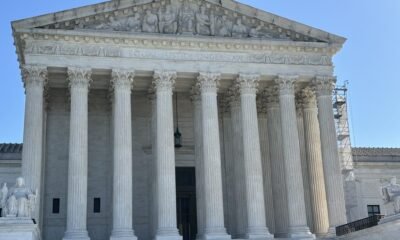2024 election
Supreme Court Upholds Legislature’s Definition of ‘Open Primaries’ Measure

The Arizona Supreme Court has ruled in favor of state legislators regarding a controversial ballot proposition aimed at ending partisan primaries. This decision overturns a previous ruling made by Maricopa County Superior Court Judge Melissa Iyer Julian, who deemed the legislative description of Proposition 140 as “misleading.”
Proposition 140, also known as the Make Elections Fair Act, proposes an open primary system where candidates for various offices, including federal, state, and local, would compete in a single primary election. This format allows all registered voters, regardless of political affiliation, to select from a pool of candidates, enhancing inclusivity in the electoral process.
The proposed measure will direct state lawmakers to decide how many candidates advance to the general election. If legislators fail to act by 2025, the responsibility transfers to the secretary of state, currently Democrat Adrian Fontes. There is also potential for implementing ranked-choice voting, a system where voters rank candidates and eliminate those with the least votes until a winner is determined.
Ranked-choice voting is already in practice in states like Alaska and Maine and cities such as Minneapolis and New York City. Proponents of the ballot measure assert that the Legislative Council’s description unfairly emphasizes the possibility of ranked-choice voting, which is not a requirement of the constitutional amendment.
After the trial court sided with the committee advocating for the measure, legislators appealed to the Arizona Supreme Court. The Supreme Court’s recent ruling established that the legislative analysis complies with legal standards, affirming the description will be included in the voter pamphlet.
Chief Justice Ann Scott Timmer noted that the Council’s description accurately reflects the initiative, rejecting claims that it was intended to mislead voters. The court emphasized that factual truth in descriptions outweighs concerns about the order in which information is presented.
The Secretary of State has been ordered to circulate the original legislative analysis. However, Prop. 140’s future remains uncertain, as it is also facing scrutiny over the validity of its signatures. A trial court previously determined the measure had sufficient signatures, but the Supreme Court has now mandated a review of claims stating there are thousands of duplicate signatures.
The outcome of this signature review is critical; if the court finds the signatures insufficient, voters will still see Prop. 140 on the ballot, but those votes would not be counted. Adding to the complexity of the case, Arizona Supreme Court Justice Clint Bolick recused himself due to potential conflicts of interest.


















